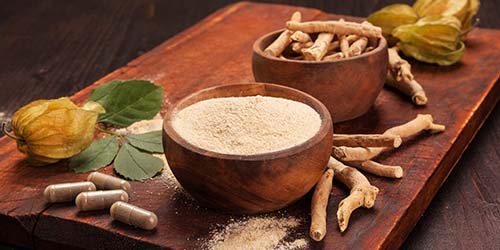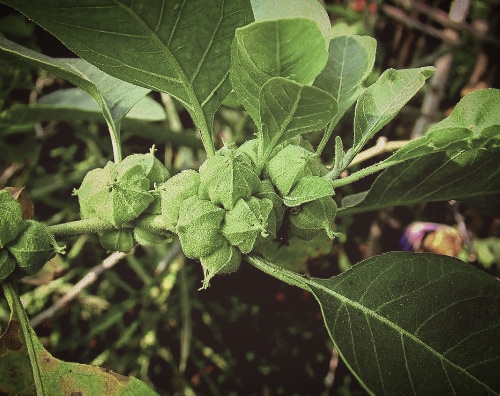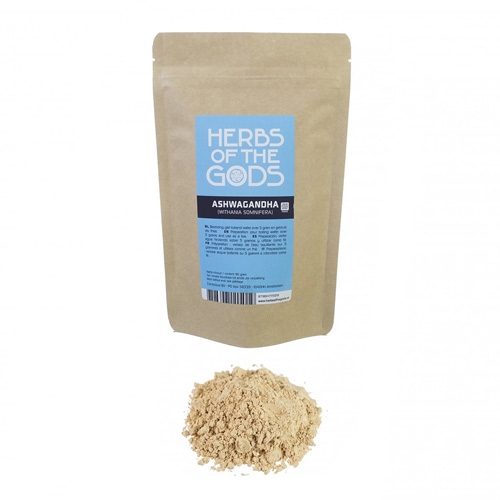
Ashwagandha root or Indian ginseng has a usage that you can read back in the history books. Dusty, ancient history books, because there are writings that it has been used for 4000 years in traditional herbal medicine, Ayurveda. You can read the benefits of the herb further on. But what is it?
What is Ashwagandha?
Winter Cherry, in case you find it a difficult word, is a traditional medicinal herb from southern Asia and India. In Ayurveda, the natural medicine from that region, the fragrant root of this plant is used because of its supposed rejuvenating effects on body and mind.
The plant produces a red fruit after flowering. That's why it's also called winter cherry. It is also known as Indian ginseng, or in science under the Latin name Withania somnifera.
Ashwagandha is a so-called adaptogen. This means that it restores physical and mental balance. So you could even benefit from it if you feel fit and healthy. Other adaptogens are for example the Chaga and Reishi Mushrooms, rhodiola and maca. Although CBD also has balancing effects, it is not an adaptogen. But CBD and ashwagandha go well together.

Experiences with Ashwagandha
Interesting things are being said about ashwagandha. One of the most common experiences with ashwagandha is that it would improve stress resistance. The herb would improve the mood and, just like cordyceps, positively influence endurance. Great for sports!
In-vitro research also shows promising results, but because this is a very early study, we cannot comment on it. We can, however, refer you to a beautiful collection on Orthokennis.nl, where both botany and research are further discussed.
We are a bit more down to earth and want to look at the other side of the ashwagandha root. For example, are there side effects of ashwagandha? And are there components of the plant that you shouldn't use?
Ashwagandha would improve stress resistance
Is Ashwagandha Dangerous?
Most food supplements contain a dose of ashwagandha extract that is lower than 1250 mg per day. This turns out to be a safe dosage, exceptionally in case of an overactive thyroid gland. And such as other food supplements that have not been sufficiently researched, we can only discourage use during pregnancy and breastfeeding.
Although there are no known side effects, it is interesting to mention that the leaves contain a higher percentage of withaferin A than the root. This is a substance that you would rather not ingest, as it is poisonous. You should also avoid ashwagandha if you are overly sensitive to plants from the nightshade (solanaceae) family.
So Ashwagandha is definitely not dangerous. You should only be aware of food supplements, your own constitution or hypersensitivity.

Buying Ashwagandha
Here in the West ashwagandha is growing enormously in popularity. In recent years alone, the demand for ashwagandha powder has increased significantly. This is because we in our society want to test our food supplements for their supposed effect. The adaptogenic qualities of ashwagandha also have a nice effect during drug use. For that reason you see more and more brands with ashwagandha food supplements in the smartshop. For example, one of the main ingredients of Tripsitter is ashwagandha. Tripsitter is meant to keep body and mind in top condition during the use of party pills and psychedelics, with the idea that you can better prevent a bad trip than counteract it.
You can also come to us for another established and reliable brand: Herbs of the Gods. A bag of fine Ashwagandha powder from Herbs of the Gods is enough to get you going for a while. You get 80 grams. Delicious to put in a smoothie!